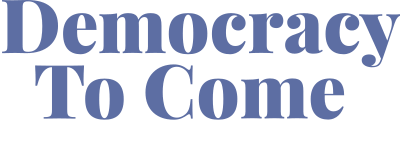Modern accounts of deliberative democracy have predominantly been defended from within the liberal tradition. The first generation of deliberative theorists, John Rawls, Jurgen Habermas and Amy Gutmann, all approached this subject from a philosophically liberal perspective. Those that followed them and built upon their work, including James Bohman, Robert Goodin, Jack Knight and James Johnson, each approach deliberative democracy in a very similar way. Meanwhile, theorists adopting alternative philosophical perspectives have often been quite critical of the deliberative project. Marxist, Chantal Mouffe suggests that citizens are emotional and passionate creatures, predisposed to violent and antagonistic behaviour rather than the consensual, rational behaviour that deliberative democrats expect. Communitarian, Charles Taylor (1993), claims that the universalistic and detached conception of judgment attributed to the liberal, deliberative citizen leaves them disconnected and isolated from civic virtue and the common purpose of their society. Whilst, Republican theorist Cass Sunstein describes a citizen who is simply not cognitively equipped for, or suited to, the kind of deliberative engagement that liberal theorists expect.
The overarching theme one can instantly recognise within these criticisms is that the citizens which the deliberative project is built upon are simply not realistic. Many theorists have tried to take this into consideration and reinterpret deliberative democracy from an alternative philosophical perspective, most notably those defending republican ‘contestation’. However, none as yet has been as powerful as the original Rawlsian or Habermasian accounts. Although these theorists have made important contributions to deliberative theory none has been able to properly distinguish and elevate itself above and beyond the liberal framework. Most importantly, republicans have not been able to reconstitute an original approach to deliberative democracy which explains how we are more likely to get citizens to participate effectively and competently in deliberative arenas. Although their approaches correctly identify that liberal theories of deliberative democracy are built upon an unrealistic and unsatisfactory portrayal of the citizen, they fail to take into account what educational and developmental assumptions support these optimistic claims about the citizen and what ultimately sustains it as a coherent and continuingly successful political framework.
These issues will be addressed within this paper in four stages. First, the ideal of liberal deliberative theory will be contrasted with what shall be called the ‘internal-psychological critique’ of the deliberative citizen. This will lead to a discussion of liberal deliberative theory and how poorly it responds to this critique and how alternative republican approaches might do otherwise. Second, the developmental foundation of the liberal approach will be outlined. This approach, provided by Jean Piaget, supports the assumptions that liberal theorists make about the development of citizens. It’s portrayal of development as i) organic, ii) universal, iii) evolutionary and iv) encouraged by facilitative methods, will be set-out. The limitations of these features will then be discussed so to underline the importance of an alternative approach to development. Third, an alternative Marxist developmental approach will be offered. This approach, proposed by Piaget’s great rival Lev Vygotsky has, so far, received no attention in the deliberative literature. It’s portrayal of development as i) cultural ii) contextual iii) revolutionary and iv) encouraged by mediatory methods, could perhaps contribute toward a more effective approach to the development of deliberative citizens and offer a firmer foundation for a republican account of deliberative democracy.
Culture, Community and Cognition: A Vygotskian Foundation for a Republican Approach to Deliberative Democracy
Paper Title:
Culture, Community and Cognition: A Vygotskian Foundation for a Republican Approach to Deliberative Democracy
Journal Title:
Studies in Marxism
Published Date:
Authors:
Griffin
Abstract:




